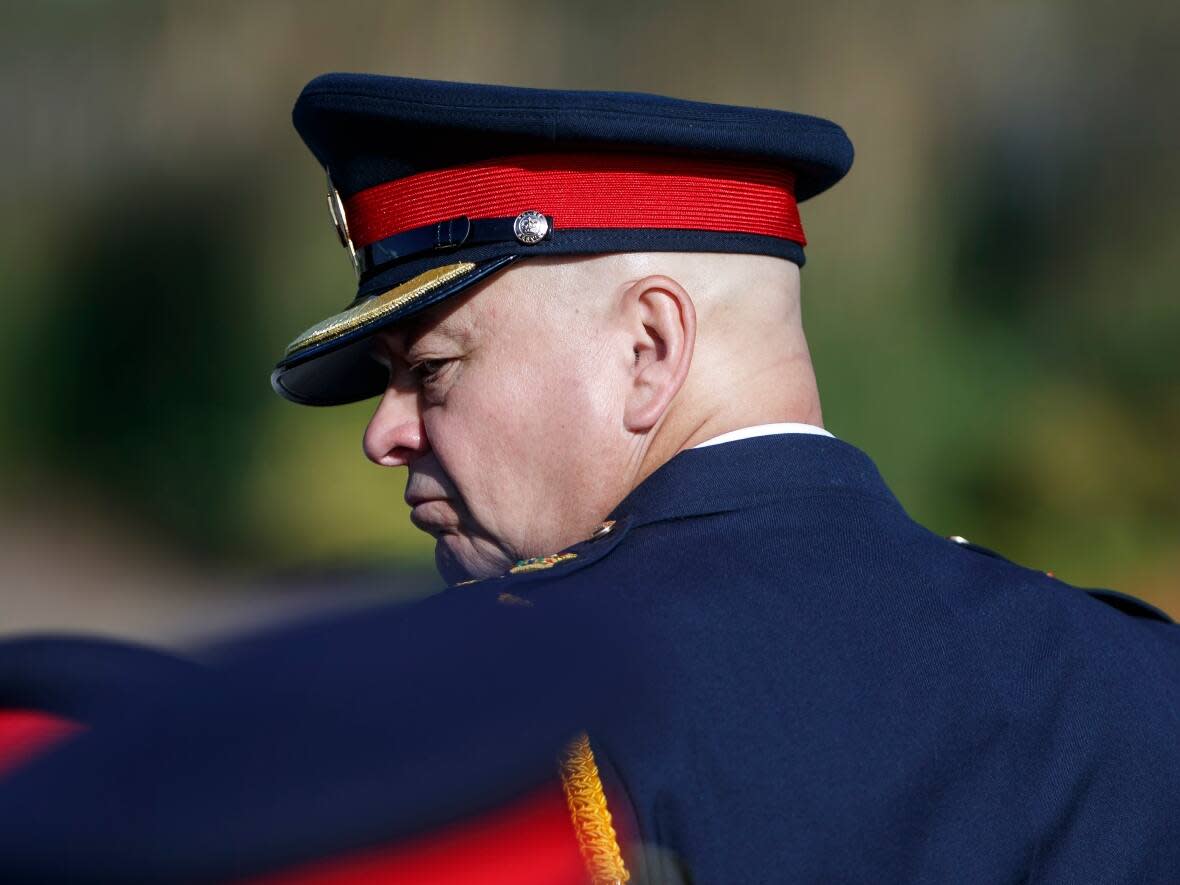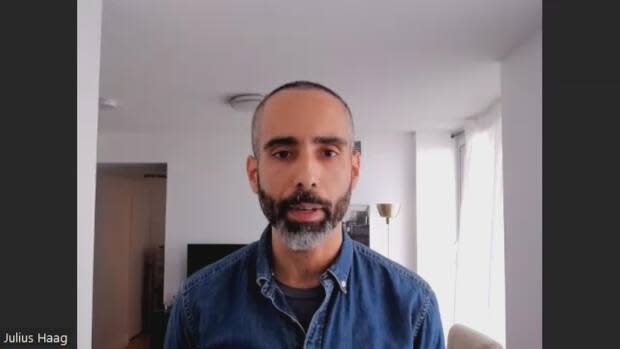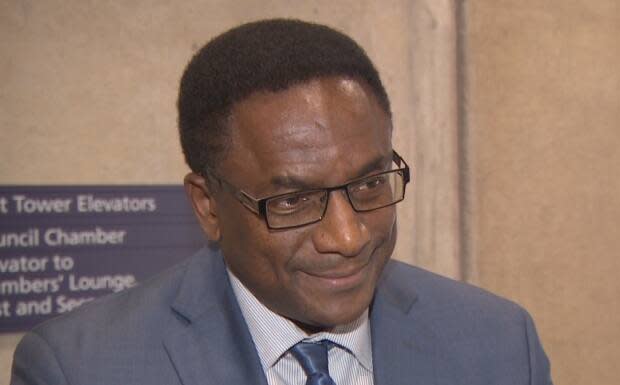What's behind the long recruitment process for Toronto's new police chief

After two years without a permanent chief, last week the Toronto Police Service selected the city's new top cop.
The lengthy timeline that led to the appointment of Myron Demkiw, a 32-year-veteran of the service, has some experts and critics asking why it took so long to select a qualified candidate who was within the ranks of the service all along.
Jim Hart, the chair of the Toronto Police Services Board, said the board intentionally set out to hold the most extensive public consultations for a chief selection process that it has ever organized. Coupled with what it felt was "solid leadership" from James Ramer, the interim chief, the board felt it could give the process more time to play out, he said.
In the end, the service posted the chief's job in May 2022, nearly two full years after former chief Mark Saunders announced his retirement.
"We would have put it out much sooner if Chief Ramer didn't do such a fantastic job, quite frankly," Hart said.
"There was a lot of change going on in the organization, the Missing and Missed report, there was police reform, and Chief Ramer was leading all of that. So we thought to bring somebody brand new into the organization in the midst of that would be really bad timing."
We would have put it out much sooner if Chief Ramer didn't do such a fantastic job, quite frankly. - Jim Hart, chair of the Toronto Police Services Board
In all, the service spent $150,000 on a community consultation and report from Environics Research and hired executive search firm Boyden to reach out to both local and International candidates.
Julius Haag, a sociology professor at the University of Toronto who studies policing, questioned what the lengthy consultation and recruitment process produced in terms of value for dollars.
"It's surprising that it did take so long to identify and select an internal candidate," he told CBC Toronto.
"And certainly, when the consultancy report comes back from Boyden, I think many people will be interested in the findings and what contributed to that process."

Haag said Demkiw faces a number of challenges if he wants to make good on pledges of reform. He will also face skepticism as a white male leader tasked with addressing discriminatory practices within the service.
"People will ask questions about whether the chief-designate is the person to try and rebuild some fractured relationships with many racialized communities here in Toronto," Haag said.
Hiring process a 'missed opportunity,' critic says
Demkiw was not available for an interview with CBC Toronto, but is expected to speak publicly about plans for his three-year term when he officially takes over the role on Dec. 19.
John Sewell, a former Toronto mayor and a long-time critic of policing in the city, said the service has a history of hiring internal candidates for the top job, and called this recruitment process a "missed opportunity."
"[Demkiw's] whole working life, for all intents and purposes, has been spent in the Toronto Police Service," he said. "You can't exist within an organization for more than three decades and somehow disagree with how they do things."
Sewell said the board's focus throughout the hiring process has been wrong. It seized on the character of the prospective chief and used a lot of "soft language" to describe what it wanted in a leader, not the specific outcomes he or she should provide, he said.
"It only talked about what kind of a character should this person be: 'He should be open, he should be inclusive, he should be a leader,'" Sewell said of the search.
"What they should have been saying was, 'Here's the problems we think we have to address.'"
'The right person at the right time'
Hart said Demkiw was hired because of his extensive policing and leadership experience. The board also believes that he can build bridges with diverse communities across the city, he said.
"He's very much seen as a leader in bridging communities," Hart said.
"He has a depth of community policing experience and a fantastic education. And he's well regarded by all of the members of the Toronto Police Service."
Toronto Deputy Mayor Michael Thompson, who has served on the police services board but has also been a critic of police practices, said he is happy with Demkiw's hiring. He called the chief-designate "thoughtful" and "caring."

He also said he's optimistic Demkiw can speed up the pace of necessary policing reforms.
"I've also felt that he's the kind of person that likes to build bridges, and enhance relationships," Thompson said.
"I think Myron is actually the right person at the right time."
Thompson said hiring for a role as complex as the Toronto police chief takes time and this process specifically was lengthened by the community consultations and the pandemic.
"I don't think that there's been anything wrong with the process, maybe it's just the level of people's expectations that it created."
Last week, Toronto Mayor John Tory, who is a member of the police board, described Demkiw as a "respected policing expert and said he will continue efforts to reform the service.
"I also know that Chief-Designate Demkiw will continue the work underway on police reform. This is so important – the work to build and rebuild trust cannot stop," Tory said.
"We must continue to reform and modernize our police service, and we must ensure that every resident across our city feels respected and protected."


